88 years ago today, my grandmother gave birth to her 15th and last child, my father. She had her first daughter in her late teens and my dad when she was in her early 40’s, and I am certainly glad she poured herself into her family in ways that few would think makes sense now. As we watched the World Cup final, the commentator described the come-back turn-around play as “illogically glorious”, a phrase that beautifully describes life (and anyone who gets Laura Marty’s updates saw that it resonated with her too!). A couple who lived on the edge of poverty and already has 14 children would not seem to be making a logical choice for one more. And yet, 88 years later, we can see some of the glory that followed. My dad lived 71 years as a faithful, generous, wise, loyal, steady, ready-with-laughter, firm presence in our family’s life and this world, blessing hundreds and thousands of others.
Christmas is an illogically glorious celebration of a birth on the other end of the fertility spectrum, not the 15th to a mom over 40 but the first to a mom under 20, unmarried, unhoused by politics and decrees, in an occupied territory and chased after the delivery by terrorising soldiers. “Let it be to me”, Mary said, when the scandalous, dangerous inconvenience of a pregnancy was announced to her. She believed in the glory to be revealed, long before there was any logical evidence of it. She believed in the illogical, mysterious connection between her infant and the limitless power of the God of all creation. In the possibility unleashed by the presence of divinity and humanity melded, the reversal of entropy into all-things-new life.
As 2022 draws near to closing, we are grateful to be following the illogically glorious footsteps of that same baby and that same story. Christmas spent on a different continent than most of our kids and both our moms, in a community tenuously vulnerable to rebel incursion (the ADF causing troubles again), hosting refugees from Congo (grateful to Forests for arranging connection and response), juggling pandemics (Ebola finally settling to zero, but COVID and malaria and a thousand others still bringing sorrows), struggling to provide for their families (the desperation of poverty has been so evident in this month as our team receives request after request for assistance). We’ve been up to our necks in end of year budget shortfalls and changes, in new required compliance with new Ugandan tax laws, in sorting out contracts for Christ School and World Harvest Mission where we push for just raises without knowing how God will provide the cash (about 60 employees, so it’s important!). Around our Area we have teams visiting in the hospitals, carolling in villages, agonising over language or schooling decisions for kids, planning cross-cultural festivities. None of us are globally remarkable, and yet . . . glory shines, if we have eyes to notice it.
As we turn to 2023, that’s on our hearts. May we have eyes to notice the subtle incarnation, the glory in the unexpected, hidden, illogical corners of our world. God’s presence 2000+ years ago came with clues for those who were looking, but always a choice to attend to it or not. Incarnation is ignorable. The hard losses and miseries of this world seem much easier to notice . . . but when we look, we see the hungry fed and the the lonely enfolded into families and the kids on the margins receive door-opening educations and the persecuted rescued. My dad was a person who could see the good in spite of the struggle, and gave generously throughout his life and beyond it. If you received our paper Christmas letter, check the needs there or follow the links here or in the sidebar to BundiNutrition and Christ School Bundibugyo or the Myhre fund if you have end-of-year giving that you want to direct into the illogical glory of small thing transforming the world.
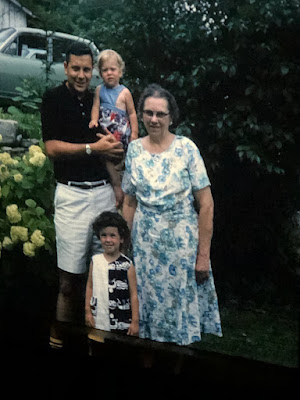

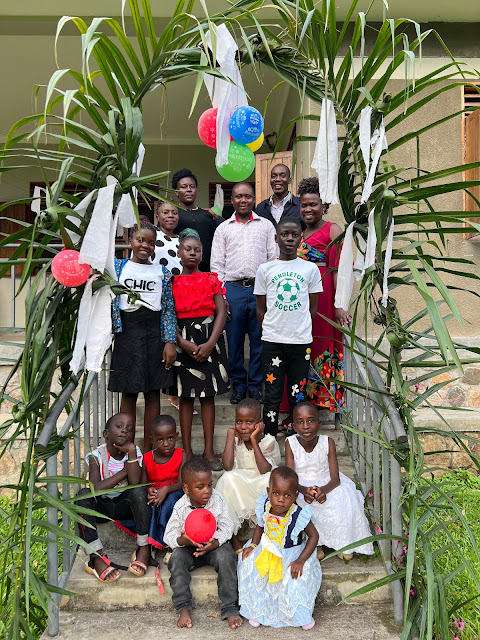
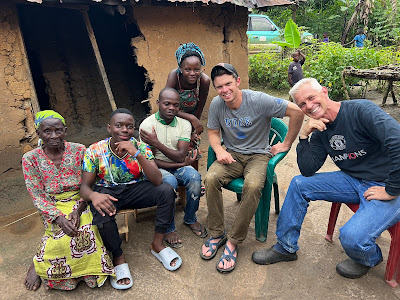




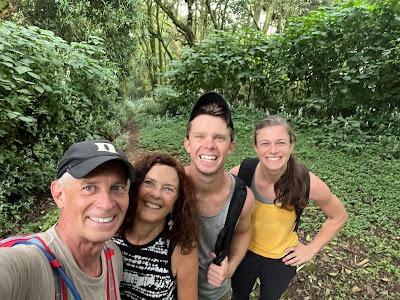







.jpeg)






.jpeg)
.jpeg)
















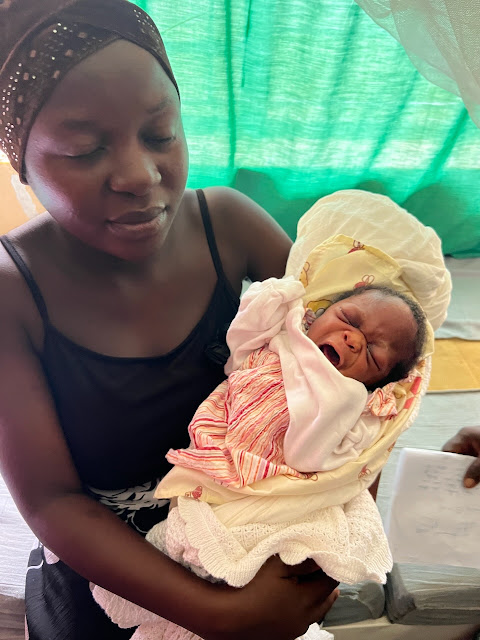



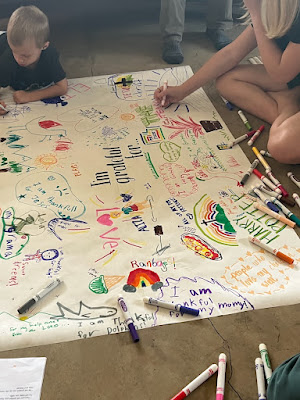

.jpeg)

